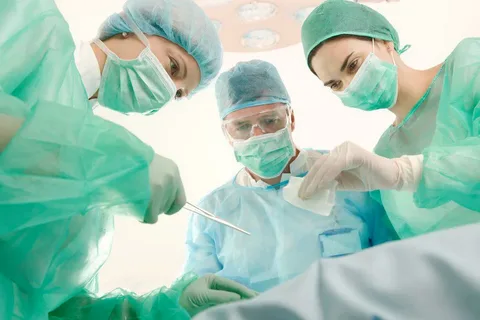The gallbladder plays a crucial role in the digestive system by storing bile, a digestive fluid produced by the liver. Bile helps in the digestion and absorption of fats. However, when the balance of substances that make up bile is disrupted, gallstones can form. These hardened deposits can lead to various health issues, making gallbladder health a priority. In some cases, gallstone surgery becomes necessary to prevent complications and restore normal digestive function. This article explores the significance of Gallstone Surgery in Dubai and its impact on overall gallbladder health.
Understanding Gallstones
Gallstones are solid particles that develop in the gallbladder, and they can vary in size from tiny grains to large stones. They form when there is an imbalance in the components of bile, which may be due to various factors such as:
- Excess cholesterol: When the liver excretes more cholesterol than the bile can dissolve, excess cholesterol may crystallize and eventually form stones.
- Excess bilirubin: Conditions that cause the liver to produce too much bilirubin, such as liver cirrhosis, biliary tract infections, or certain blood disorders, can lead to gallstone formation.
- Insufficient bile salts: Bile salts help dissolve cholesterol. If there are not enough bile salts, cholesterol may crystallize, leading to stone formation.
There are two primary types of gallstones:
- Cholesterol stones: These are the most common type, accounting for approximately 80% of gallstones. They are usually yellow-green in color and primarily consist of hardened cholesterol.
- Pigment stones: These stones are smaller and darker, formed from bilirubin. They are more common in individuals with liver disease or blood disorders.
Symptoms of Gallstones
Gallstones may remain asymptomatic, but when they obstruct the bile ducts, they can cause severe pain and other symptoms, including:
- Biliary colic: This is characterized by sudden and intense pain in the upper right abdomen or center of the abdomen, often occurring after meals.
- Nausea and vomiting: These symptoms may accompany biliary colic, especially after consuming fatty foods.
- Jaundice: If a gallstone blocks the bile duct, it can lead to jaundice, characterized by yellowing of the skin and eyes.
- Fever and chills: These symptoms may indicate an infection or inflammation, requiring immediate medical attention.
The Importance of Gallstone Surgery
When symptoms arise, or complications develop, gallstone surgery becomes essential. Here are several reasons why gallstone surgery is vital for gallbladder health:
1. Alleviating Pain and Discomfort
Gallstones can cause significant abdominal pain and discomfort, particularly during episodes of biliary colic. Gallstone surgery, usually performed as a laparoscopic cholecystectomy, removes the gallbladder, alleviating pain and preventing further episodes.
2. Preventing Complications
Gallstones can lead to serious complications, such as:
- Cholecystitis: Inflammation of the gallbladder that can occur if a gallstone blocks the cystic duct.
- Pancreatitis: Inflammation of the pancreas that can result from a blocked bile duct.
- Cholangitis: Infection of the bile duct that can be life-threatening if left untreated.
Surgery removes the gallbladder and any obstructive stones, reducing the risk of these complications.
3. Improving Digestive Health
While the gallbladder aids in fat digestion, the body can adapt to its absence. After gallbladder removal, bile flows directly from the liver to the small intestine, which can improve digestion for many individuals. Many patients report a reduction in digestive issues, such as bloating and indigestion, following surgery.
4. Enhancing Quality of Life
Chronic gallstone-related pain and digestive issues can significantly affect an individual’s quality of life. Gallstone surgery can restore comfort, allowing individuals to return to normal activities and enjoy life without the constant worry of gallstone-related complications.
5. Minimally Invasive Options
Laparoscopic cholecystectomy, the most common surgical procedure for gallstones, is minimally invasive. It involves small incisions, resulting in reduced pain, shorter recovery times, and less scarring compared to open surgery. Most patients can return to their daily activities within a week.
Post-Surgery Care and Gallbladder Health
After gallstone surgery, maintaining good gallbladder health is essential. Here are some post-surgery tips:
1. Dietary Adjustments
Although the body can adapt to life without a gallbladder, making certain dietary changes can help optimize digestion:
- Eat smaller meals: This can help the body digest food more efficiently.
- Limit fatty foods: High-fat meals may cause discomfort in the absence of the gallbladder.
- Increase fiber intake: A diet rich in fruits, vegetables, and whole grains can promote digestive health.
2. Stay Hydrated
Drinking plenty of water helps support overall digestion and helps the liver function efficiently.
3. Regular Physical Activity
Engaging in regular physical activity can help maintain a healthy weight and promote digestive health.
4. Monitor Symptoms
Patients should monitor their symptoms and consult a healthcare professional if they experience any unusual discomfort, changes in bowel habits, or other digestive issues post-surgery.
Conclusion
Gallbladder health is essential for overall digestive well-being, and gallstone surgery plays a crucial role in maintaining that health. By alleviating pain, preventing complications, and improving digestive function, gallstone surgery can significantly enhance quality of life. If you experience symptoms of gallstones, consult with a healthcare professional to discuss your options. With the right treatment and post-surgery care, you can reclaim your health and enjoy a more fulfilling life.





Comments